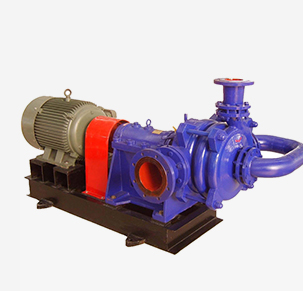English
- Afrikaans
- Albanian
- Amharic
- Arabic
- Armenian
- Azerbaijani
- Basque
- Belarusian
- Bengali
- Bosnian
- Bulgarian
- Catalan
- Cebuano
- Corsican
- Croatian
- Czech
- Danish
- Dutch
- English
- Esperanto
- Estonian
- Finnish
- French
- Frisian
- Galician
- Georgian
- German
- Greek
- Gujarati
- Haitian Creole
- hausa
- hawaiian
- Hebrew
- Hindi
- Miao
- Hungarian
- Icelandic
- igbo
- Indonesian
- irish
- Italian
- Japanese
- Javanese
- Kannada
- kazakh
- Khmer
- Rwandese
- Korean
- Kurdish
- Kyrgyz
- Lao
- Latin
- Latvian
- Lithuanian
- Luxembourgish
- Macedonian
- Malgashi
- Malay
- Malayalam
- Maltese
- Maori
- Marathi
- Mongolian
- Myanmar
- Nepali
- Norwegian
- Norwegian
- Occitan
- Pashto
- Persian
- Polish
- Portuguese
- Punjabi
- Romanian
- Russian
- Samoan
- Scottish Gaelic
- Serbian
- Sesotho
- Shona
- Sindhi
- Sinhala
- Slovak
- Slovenian
- Somali
- Spanish
- Sundanese
- Swahili
- Swedish
- Tagalog
- Tajik
- Tamil
- Tatar
- Telugu
- Thai
- Turkish
- Turkmen
- Ukrainian
- Urdu
- Uighur
- Uzbek
- Vietnamese
- Welsh
- Bantu
- Yiddish
- Yoruba
- Zulu
Telephone: +86 13120555503
Email: frank@cypump.com
Jul . 29, 2024 21:30 Back to list
Understanding the Functionality and Applications of Chemical Injection Pumps in Various Industries
The Role of Chemical Injection Pumps in Various Industries
Chemical injection pumps are pivotal devices used across various industries to ensure the accurate delivery of chemicals into fluid systems. These pumps are essential in processes where precise control of chemical concentrations is critical for safety, efficiency, and overall operational success.
Chemical injection pumps can be found in industries such as oil and gas, water treatment, agriculture, and pharmaceuticals. Each sector utilizes these pumps in slightly different ways, depending on the specific demands of their processes.
In the oil and gas industry, chemical injection pumps are essential for a variety of applications, including the injection of corrosion inhibitors, scale inhibitors, and biocides into pipelines and production systems. These chemicals help to maintain the integrity of the pipes, prevent the formation of mineral deposits, and control microbial growth, which can lead to blockages or corrosion. The precise dosing provided by these pumps ensures that the right amount of chemical is introduced into the system, avoiding wastage and reducing environmental impact.
In the realm of water treatment, chemical injection pumps play a critical role in the disinfection and purification of water supplies. Chemicals such as chlorine or ozone are often injected into water systems to eliminate pathogens and make water safe for consumption. The ability to maintain consistent and accurate flow rates is vital, as it ensures that the water treatment processes remain effective and compliant with health regulations.
chemical injection pump

Agriculture also benefits significantly from chemical injection pumps, particularly in fertigation—the application of fertilizers through irrigation systems
. By employing chemical injection pumps, farmers can deliver nutrients directly to the plants' root zone in a controlled manner. This not only improves plant health and yields but also enhances water efficiency, allowing for more sustainable agricultural practices.In the pharmaceutical industry, the precision afforded by chemical injection pumps is crucial for the manufacture of medication. The production of drugs often requires the careful mixing of various chemicals in specific proportions. Any deviation from the required amounts can lead to ineffective treatments or even harmful side effects. Chemical injection pumps ensure that the necessary materials are delivered accurately and consistently, facilitating the adherence to stringent regulatory standards.
Given the diverse applications of chemical injection pumps, several types exist, each designed for particular requirements. Some of the commonly used types include diaphragm pumps, peristaltic pumps, and piston pumps. Diaphragm pumps are known for their ability to handle corrosive and viscous fluids, while peristaltic pumps are favored for their ease of maintenance and ability to handle shear-sensitive materials. Piston pumps, on the other hand, are typically used in high-pressure applications.
Automation has also become an integral part of chemical injection systems. Many modern chemical injection pumps can be controlled via a centralized system or remotely through software applications. This level of automation allows for real-time monitoring and adjustments, leading to improved efficiency and reduced risk of human error.
In conclusion, chemical injection pumps are a fundamental component across numerous industries, providing essential services for the accurate delivery of chemicals. The advancements in pump technology and automation continue to enhance the capabilities and reliability of these systems, making them indispensable for maintaining operational safety and efficiency. As industries evolve and face new challenges, the role of chemical injection pumps will only become more significant, helping to drive innovation and sustainability across the board.
-
Custom Drilling Mud and Slurry Pump Supplier - High Efficiency, Tailored Solutions
NewsJun.10,2025
-
Supply Vertical Submersible Sewage Pump High-Efficiency WQ/QW Pumps Supplier
NewsJun.10,2025
-
Premium Sewage Ejection System & Pumps Efficient Waste Removal
NewsJun.09,2025
-
Premium Wholesale Slurry Pump Impellers Durable & Efficient Slurry Handling
NewsJun.09,2025
-
Top Sewage Pump Companies Durable Industrial Solutions for Efficiency
NewsJun.09,2025
-
Heavy Duty Slurry Pumps - OEM High Performance & Bulk Wholesale
NewsJun.09,2025










